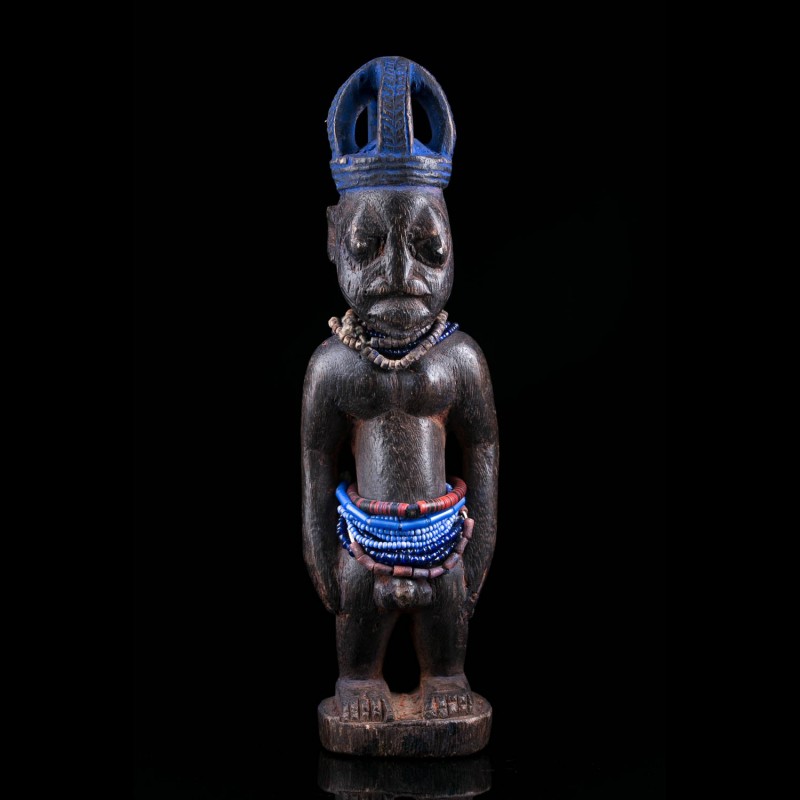

















The traditional ibeji statuettes are carved on the occasion of the birth of twins. The mother will keep these objects and cherish them because they embody the spirit of her children. This relationship is mingled with fear, because the disappeared keeps a power. It can dispel luck and wealth, but conversely, if it is neglected, its action may be negative. The occurrence of twinship among the Yoruba, Nigeria, being very high, this characteristic naturally influenced their statuary.
The cap is encrusted with blue pigment, a sign of magic charge. Beautiful old patina, presence of pearl necklaces. In the past, the birth of twins was experienced as an incomprehensible event and was therefore the subject of special superstitions. The most common belief in Africa was that the twins had to be the result of two different fathers and thus testified to the infidelity of their mother who was then killed with her children.
The Yoruba also thought that it was impossible for a human to conceive more than one child at a time, convincing them that the mother of twins could not be human, as were her children. The latter were then killed and their mother banished from the village for fear that these supernatural beings do not bring down the misfortune on the community.It is interesting to note that if the occurrence of twin births is one for 80 on average in the world, it is one for 22 among the Yoruba. As a result, population growth was lower than that of other African ethnic groups due to the extermination of children born in pairs.
It is unclear when exactly Yoruba beliefs evolved favorably towards twins. Legend has it that about a century ago, when melancholy was invading the heart of the Yoruba people, the oracle of Ifa recommended ending the killing of twins and honoring them from that day. Another legend The legendary king Ajaka, the brother of the god Shang, put an end to the massacre after his wife gave birth to twins. The consideration they received was, in any case, radically changed. from the first half of the 19th century. The Yoruba were gradually convinced that the twins were endowed with supernatural powers bringing happiness, health and prosperity to the families from which they came. As a result, they were treated with respect, consideration and finery.
Their birth became the occasion of festivals and festivals to which went the whole village even even the surrounding villages. A few days after the birth, the village priest, also called babalawo, went to the newborns, consecrated them to the Orisha dedicated to the Ibeji, and gave the mother recommendations about food and other superstitious advice. This beautiful Ibeji figure has been sold by our African art gallery, the Belgian reference.
Origin : private collection, BelgiumDating : 1950'sSize : 32 x 9 cmMaterial : wood
Data sheet
You might also like